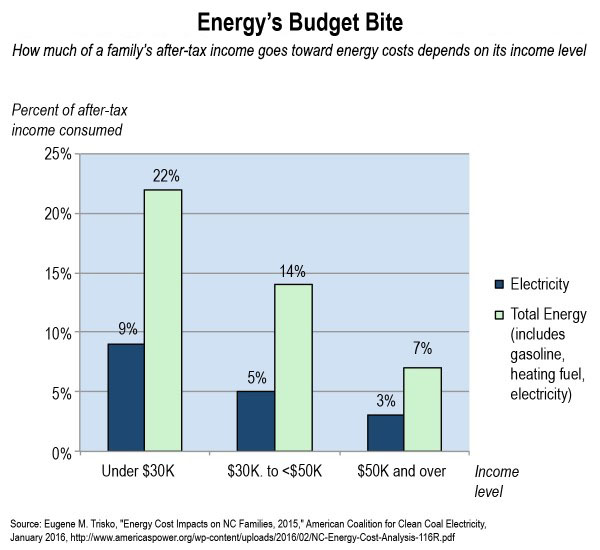The idea for my Carolina Journal column today came to me Sunday night, while I was sitting in the dark with the rest of my family reading by candlelight

and hoping we would have power and water restored soon. Duke Energy’s blanket announcement that it’d be done by October 16 — the following Sunday — had us rather upset, even though we had prepared for a long stretch without either.
I thought of just how much we rely on electricity and what it means to us (heating, cooling, cooking, warming water, powering electronics). I thought of FDR’s Rural Electrification Administration and the idea — recently abandoned by liberals — that accessible, affordable electricity is a boon to the poor and the country in general. I thought of the proportionally greater expense of electricity to the poor, since it’s something we all need and all must buy.

And I thought of REPS, the cronyism behind it, and the mendacity and cynicism of using massive lobbying efforts to get an increasing chunk of the market by politics since it can’t be won by cost-competitiveness.


And it struck me, again, the choice we face concerning how we control people’s access to this basic human need. Do we seek to protect their access, or do we seek to take advantage of their need? Or as I phrased it before from the policymaking side, do legislators choose serve the interests of citizens of North Carolina, or do they serve the interests of a powerful industry group?


